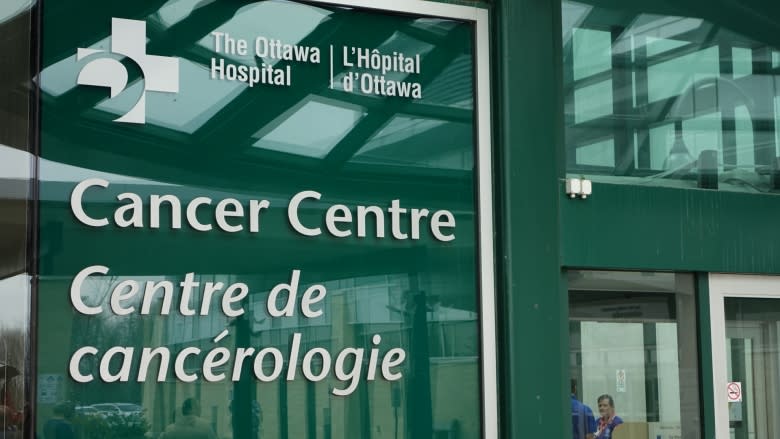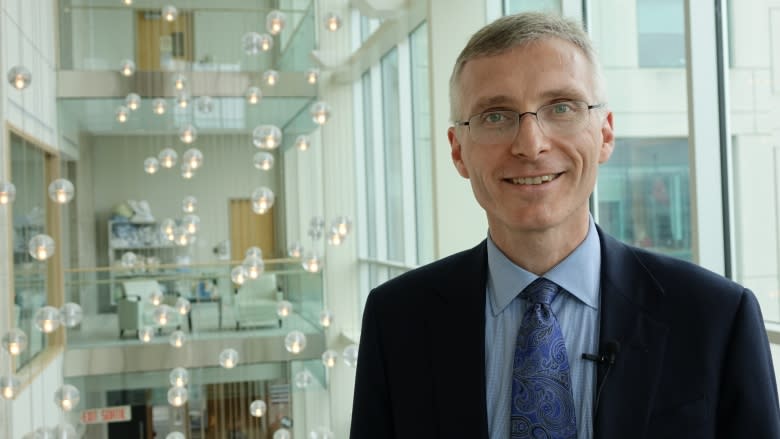Cancer patients begin experimental viral treatment
An experimental treatment that involves injecting a virus into the bloodstream of lung cancer patients has begun clinical trials at hospitals in Ottawa and Hamilton.
It's hoped the virus will infect cancer cells, and while that alone may not be enough to halt the disease, the treatment could crank up the patient's immune system to help even the odds.
"The virus circulates through a person's blood, but it really has a predisposition to attack cancer cells," said Dr. Garth Nicholas, an oncologist and the trial's lead at the Ottawa Hospital.
"Once those cancer cells are infected by the virus, they appear much more foreign, much more unusual, and we think that will trigger the immune system to attack those cancer cells more aggressively."
While the idea of stimulating a cancer patient's immune system, known as immunotherapy, is not new, Nicholas said he hopes using a virus to do it will make a difference for lung cancer patients.
Nicholas and his research colleagues at Hamilton Health Sciences plan to treat 55 lung cancer patients who have seen their cancer spread to another organ.
To qualify for the trial, patients must have already undergone one cycle of treatment, such as chemotherapy, and be ready for a second cycle.
Virus 'very safe'
The viral therapy at the root of the treatment, labelled MG1-MAGEA3, was created in a lab at the Ottawa Hospital and has been specifically designed to attack cancer cells.
It actually combines two viruses engineered by researchers with the Children's Hospital of Eastern Ontario, McMaster University, the Ottawa Hospital and the University of Ottawa.
One of the viruses stems from the Maraba virus, which was first isolated in Brazilian sandflies. The second is a variation of the common cold.
According to Nicholas, neither presents a danger.
"The virus really is very safe," said Nicholas. "This is a virus that people are often exposed to in every day life. It doesn't cause much except a flu-like illness."
As of Wednesday, only two patients — one in Ottawa and the other in Hamilton — have been recruited for the trial.
Nicholas said people with lung cancer who believe they may be a candidate for the trial should speak to their oncologist if they're interested in receiving the viral therapy.
He said it will likely take two years to accumulate the results from all 55 patients.



